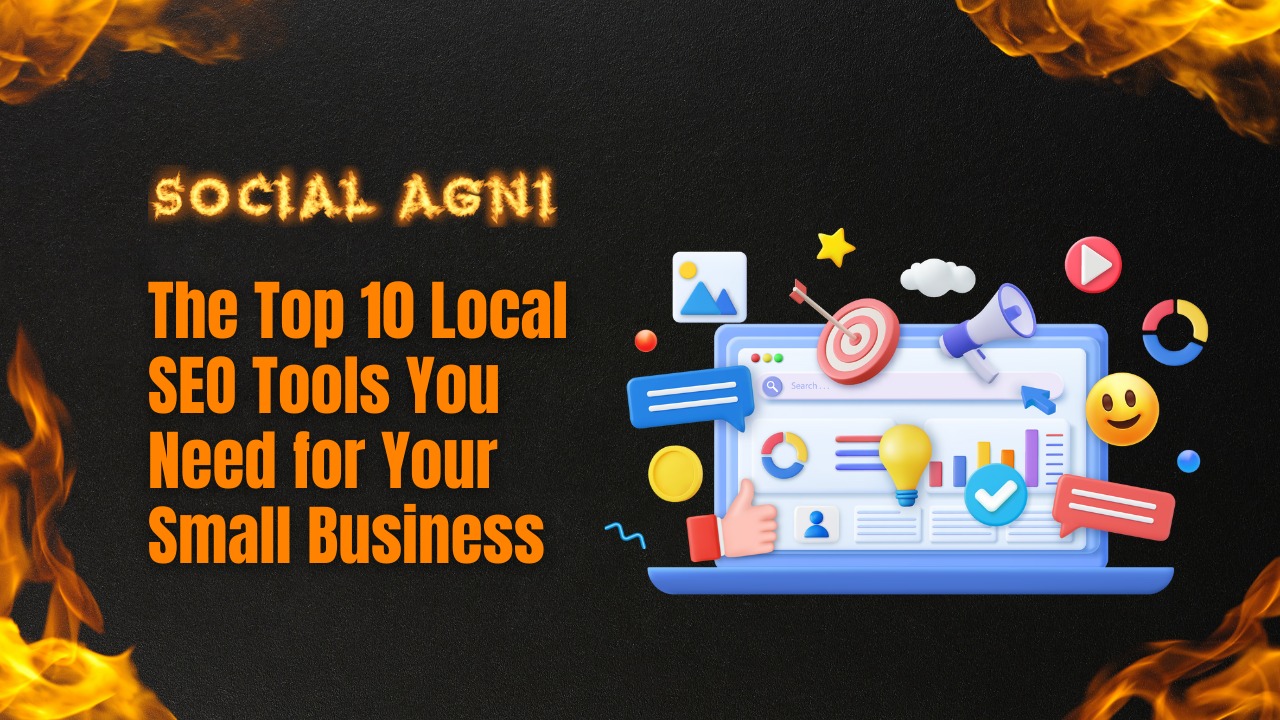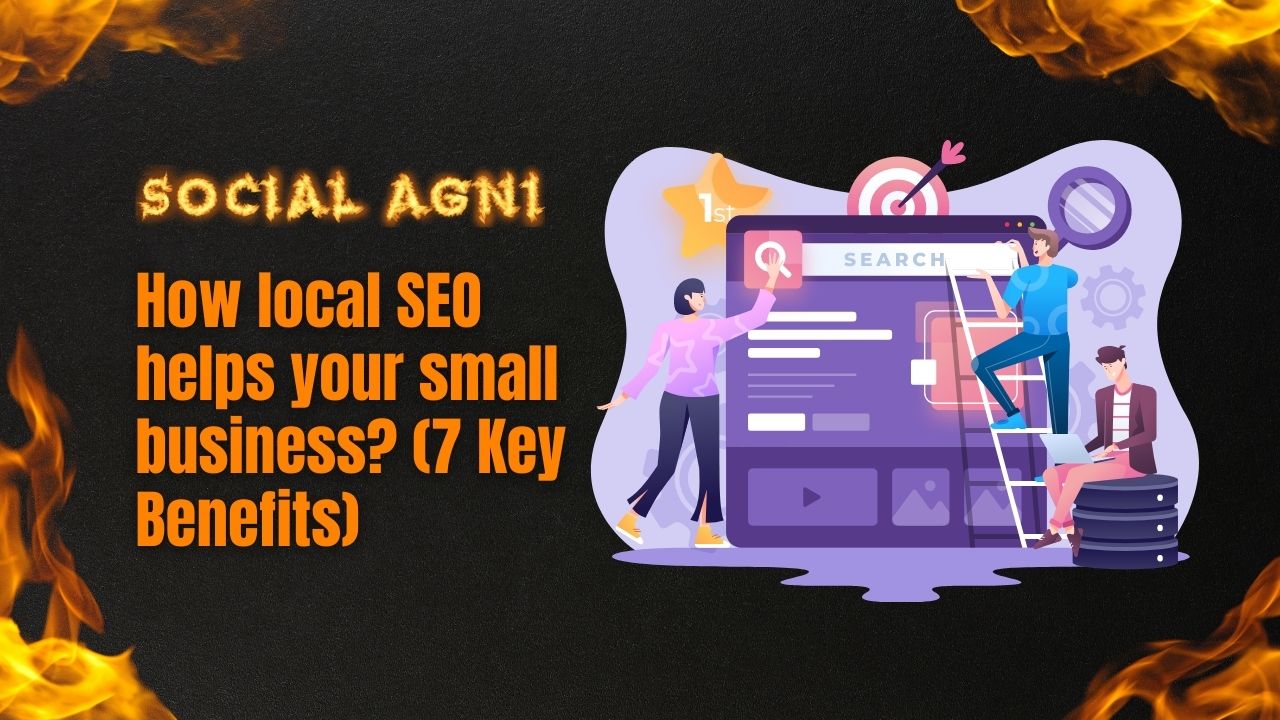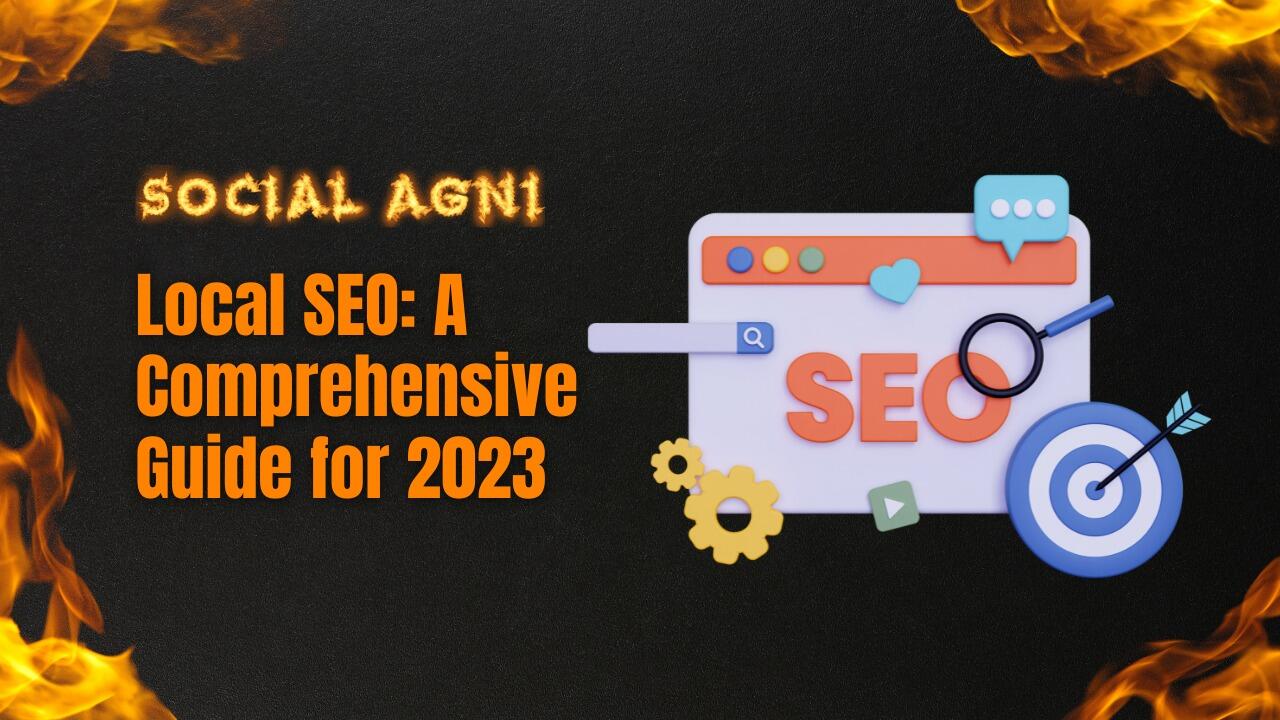Local SEO is essential for small businesses in today’s competitive digital environment. To attract local customers, small companies must maximize their internet presence. Local SEO tools are crucial. Local SEO solutions help small companies increase their online presence, search engine rankings, and focused visitors. These programs can handle local listings, keywords, citations, reviews, and competitors. GMB is a popular local SEO tool. GMB helps companies become listed in local search results via Google Maps. Businesses may enhance their chances of appearing in the “Local Pack” and attracting local clients by improving their GMB profiles with correct and up-to-date information. Local SEO tools include Moz Local. Businesses can manage their web listings across directories and platforms using Moz Local to ensure consistency. Search engines trust businesses that have consistent NAP (name, address, phone number) data across directories. Another top local SEO tool, Yext, lets companies manage their internet listings, monitor feedback, and interact with consumers. Yext helps companies ensure their information is correct and consistent across several directories, improving their local search results. BrightLocal tracks local search rank, builds citations and monitors reviews. Businesses may attract more clients by checking their local search rankings and developing citations on trusted directories. Local SEO tools like Whitespark develop local citations and manage reputations. Citations—website references of a business’s name, address, and phone number—impact local search rankings. Whitespark helps firms obtain relevant citations and manage their internet reputation. SEMrush, a popular SEO tool, supports local SEO. It lets companies analyze local keywords, enhance website content for local searches, and track local search results. Businesses may attract local clients by optimizing their websites for local keywords. Ahrefs, known for backlink analysis, has local SEO functions. Ahrefs can assess rivals’ backlinks, find link-building possibilities, and reveal competitor strategies. Businesses may improve local SEO by monitoring backlinks and analyzing competitors. Local SEO checklists provide a methodical approach. Local SEO checklists help companies optimize their websites, listings, and reviews. Businesses may avoid missing important local SEO steps by following a checklist. Raven Tools offers site audits, link building, and keyword research for local SEO. Local search success requires website audits, high-quality backlinks, and keyword targeting. Serpstat delivers keyword research and rank tracking for local SEO. Businesses may keep ahead of the competition by monitoring local search trends and keyword rankings. Google My Business Google My Business (GMB) helps businesses maintain their web presence and rank high in local search results and Google Maps. Its features and benefits can boost a small business’s visibility and consumer base. GMB lets companies construct a thorough profile including their name, address, phone number (NAP), website, hours of operation, and product or service descriptions. This information displays in Google’s Knowledge Panel when consumers search for relevant businesses, improving their chances of acquiring clients. Optimizing GMB profiles boosts local search results for companies. Google shows the “Local Pack”—a prominent area highlighting three local businesses—when consumers search for terms related to their business and region. GMB ensures accurate and consistent information to help companies appear in the Local Pack and be chosen by customers.\ GMB lets companies respond to client evaluations and ratings. Trust and trustworthiness from positive reviews and ratings might sway potential buyers. GMB engagement shows good customer service and can boost repeat business and word-of-mouth. GMB connects easily with Google Maps, allowing companies to appear in map searches. It helps customers obtain directions, photographs, and other critical information right from the map, making it especially useful for businesses with physical locations. Google Maps helps local businesses get clients. GMB lets companies publish and update their profile in search results. Special discounts, events, product updates, and other pertinent information can be posted. Businesses may increase website traffic and conversions by consistently posting entertaining and helpful content. GMB gives excellent data and statistics regarding user profile interactions. GMB dashboards let businesses measure views, searches, and activities like website visits and phone calls. These insights help firms understand their audience, gauge strategy efficacy, and make data-driven decisions. Moz Local Moz Local is a comprehensive local SEO tool that helps companies boost their online presence across directories and platforms. It has tools to boost local search visibility and attract local consumers. Local Listing Management: Moz Local helps companies manage their listings on Google, Facebook, Yelp, and more. Businesses may standardize NAP data across listings using Moz Local. Consistency helps search engines trust and confirm a business’s information, improving local search rankings. Listing Distribution: Moz Local’s Listing Distribution function distributes companies’ NAP data uniformly throughout directories, data aggregators, and web platforms. This automates updating and disseminating business information to relevant web directories, enhancing local search exposure. Review Monitoring: Moz Local lets companies respond to customer reviews across platforms from a single dashboard. Tracking customer reviews helps firms respond to bad evaluations and communicate with pleased consumers. Actively managing reviews build trust and credibility, affecting potential consumers’ image of the organization. Local Search Analytics: Moz Local analyzes local search performance for businesses. It shows how clients are discovering the business, which directories are most visible, and their search rankings over time. These insights assist organizations understand local SEO, discovering areas for development, and making data-driven decisions to enhance their strategy. Online Presence Score: Moz Local rates firms’ online presence. This score incorporates NAP data correctness and consistency, online review quantity and quality, and company information completeness. Businesses use the Online Presence Score to evaluate their local SEO and prioritize online visibility improvements. Local SEO Audit: Moz Local analyzes a business’s local SEO performance. It optimizes on-page SEO, website performance, mobile-friendliness, and more. Businesses may improve their website’s local search visibility and user experience by implementing audit suggestions. Yext Businesses can manage their web listings, customer feedback, and audience engagement with Yext, a strong local SEO tool. Yext enhances local search visibility and ensures accurate and consistent company information across numerous directories and platforms with a wide range of features and functions. Business Listing Sync: Yext’s Business Listing Sync lets companies maintain and update their NAP data across
In today’s digital era, having an online presence is essential for any business. However, for small businesses that operate locally, a strong online presence can be the key to success. This is where local SEO comes in. Local SEO refers to the process of improving the visibility and ranking of your website and online presence in local search results through optimization techniques. In this article, we’ll discuss seven key benefits of local SEO for small businesses. Better visibility in local searches Local SEO is a powerful tool that can help small businesses to increase their online visibility in local searches. By optimizing your website and online presence for local search, you can rank higher in search results, making it easier for potential customers to find you. To improve your visibility in local searches, you need to optimize your website content with local keywords. These are words and phrases that are relevant to your business and location. You can also create local business listings on search engines and build local links to your website. When your small business appears in the top search results, you can attract more potential customers to your website or store. It is crucial to make certain that your website is simple to use and straightforward to explore. This can help to keep visitors on your site and increase your chances of generating leads and sales. Increased website traffic Local SEO can also help small businesses to attract more website traffic. When your website appears in the top search results, potential customers are more likely to click on your website link. However, it’s not just about attracting more traffic to your website; it’s about attracting the right traffic. By optimizing your website for local search, you can target people who are interested in your products or services and are located in your area. This targeted approach can help you to attract more qualified leads and increase your chances of converting visitors into paying customers. To increase your website traffic, you need to create high-quality content that is relevant to your target audience. Social media platforms can also be utilized to publicize your content and interact with your audience. By providing valuable content and engaging with your audience, you can build a loyal following and attract more website traffic over time. More qualified leads Local SEO can help small businesses to generate more qualified leads. By targeting people who are searching for products or services in their local area, you can attract potential customers who are more likely to be interested in what you have to offer. To generate more qualified leads, you need to optimize your website and online presence for local search. This can involve creating local business listings on search engines, building local links to your website, and optimizing your website content with local keywords. You can also use social media to connect with potential customers and promote your products or services. By building relationships with your audience and providing value, you can attract more qualified leads and increase your chances of converting visitors into paying customers. Higher conversion rates Local SEO can also help small businesses to improve their conversion rates. By creating a better user experience for website visitors, you can increase the chances of converting them into paying customers. To improve your conversion rates, you need to make it easy for visitors to find the information they need and navigate your website. This can involve optimizing your website content, creating clear calls-to-action, and providing contact information. You can also use customer reviews and testimonials to build trust with potential customers. By providing social proof that your products or services are high-quality and reliable, you can increase the chances of converting visitors into paying customers. Increased customer engagement Local SEO can also help small businesses to engage with their customers better. By encouraging customer reviews and feedback, you can increase customer engagement and loyalty. To increase customer engagement, you need to provide excellent customer service and encourage feedback. You can also use social media to connect with your audience and respond to their questions and comments. By building relationships with your customers and showing that you value their opinions, you can build a loyal customer base that can help you to grow your business over time. Competitive advantage Local SEO can also give small businesses a competitive advantage over their competitors. By appearing in the top search results, you can make it easier for potential customers to find you and increase your chances of generating leads and sales. To gain a competitive advantage you need to create a unique selling proposition (USP) that sets you apart from your competitors. This can be a combination of your location, products, services, or customer service. You can also monitor your competitors’ local SEO strategies and adjust your own strategy accordingly. By staying up-to-date with industry trends and best practices, you can stay ahead of the competition and attract more customers to your small business. Cost-effective marketing Finally, local SEO is a cost-effective marketing strategy for small businesses. Unlike traditional advertising methods such as print ads or billboards, local SEO allows you to reach potential customers who are actively searching for your products or services. By optimizing your website and online presence for local search, you can attract more qualified leads and generate more sales without spending a lot of money on advertising. You can also use free tools such as Google My Business to create a local business listing and promote your products or services for free. This can help you to reach a wider audience and attract more customers to your small business. Conclusion In today’s digital age, local SEO is essential for small businesses that want to increase their online visibility, attract more targeted traffic, and gain a competitive edge. With its many benefits, local SEO can help your small business achieve its goals and grow its customer base. So, if you haven’t already, it’s time to start optimizing your website for local
Introduction As the digital landscape continues to evolve, so do the strategies used by brands, businesses and organizations to reach their target audiences. Local SEO is one such strategy that has become increasingly popular in recent years. This comprehensive guide will provide you with everything you need to know about local SEO in 2023, from understanding the basics of local search engine optimization to tips as to how to use local SEOs. Whether you’re just starting or are a seasoned professional, this guide is sure to help you take informed decisions and refine your overall marketing plan. What is local SEO? It is the process of optimizing your online content and presence to increase your visibility and ranking in local search results. It is a specialized form of SEO that focuses on optimizing for locally-based searches, usually with the intent of driving foot traffic to brick-and-mortar businesses. While local SEO shares many similarities with standard SEO practices, there are a few key differences. For one, local SEO is heavily reliant on citation building – making sure your business name, address, and phone number (NAP) are consistent across the web. This helps Google verify your business and match it with relevant searches. Secondly, local SEO also places a strong emphasis on reviews and ratings from sites like Yelp and Google My Business. Good reviews not only improve click-through rates (CTRs) but also signal to Google that your business is reputable and trustworthy. If you’re running a local business, then local SEO should be a key part of your digital marketing strategy. You may expand your target market and attract new clients by enhancing your website and other digital properties for local search. SEO and local SEO – what’s the difference? The practice of improving the ranking of a website on search engines is what Search Engine Optimization (SEO) is all about. Local SEO is a subset of SEO that is focused on optimizing a website for local search results. The main difference between SEO and local SEO is that local search engine optimization is geared towards getting a website to rank for locally relevant keywords, while SEO can be used to target keywords that are relevant to a national or international audience. Using local search engine optimization is crucial for any business that wants to be discovered by local clients. By optimizing their website for local search results, they can increase their chances of being found by people who are looking for what they have to offer. SEO is still important for businesses, even if they are not targeting a local audience. A strong SEO strategy can help a business rank high in search results for their industry, which can lead to more website visitors and potential customers. How does local SEO work? It is an important part of any comprehensive digital marketing strategy, as it helps you improve your search engine rankings for keywords related to your business and its products or services. Several different factors contribute to local SEO, including: The physical location of your business or organization The content on your website (including blog posts, articles, etc.) Your Google My Business listing Online directories and review sites Social media accounts Citations (listings of your business name, address, and phone number on other websites) Backlinks (links from other websites to yours) Local keyword optimization Optimizing for voice search Mobile-friendly website design and UX Benefits of using Local SEO Online business promotion can take many forms. But if you want to make sure that your target customers can find you easily and that you’re not spending a fortune on advertising, then Local search engine optimization is the way to go. Here are just some of the benefits that you can enjoy: You Can Save Money: As we mentioned, Local SEO is a cost-effective way to market your business online. You don’t have to spend a lot of money on advertising because your website will be optimized for local search engine results. This means that when people in your area search for businesses like yours, they’re more likely to find you first. You Can Reach Your Target Customers Easily: When you use Local SEO, you can be sure that your target customers will be able to find you easily. This is because your website will be optimized for local search engine results. This means that when people in your area search for businesses like yours, they’re more likely to find you first. You Can Get More Customers: Local SEO can help you get more customers because it allows you to reach your target customers easily. As mentioned above, when people in your area search for businesses like yours, they’re more likely to find you first. And when they do find you, they’re more likely to become customers because they know that you’re a local business. You Can Build Trust: Local SEO can help you build trust with your customers because they know that you’re a local business. People tend to trust local businesses more than national or international ones, so this can be an effective way to build relationships with your customers. You Get Long-Term Benefits: When you use Local SEO, the benefits are long-term since it’s not a one-time marketing effort. Drawbacks of Local SEO Local SEO can be a great way to improve your online visibility and attract new customers, but there are some drawbacks to consider before jumping in. First, it can be time-consuming to optimize your site for local search engine algorithms. You’ll need to research keywords, create content that includes those keywords, and make sure your website is properly coded so that search engines can find and index it. Second, competition for local search engine optimization is often fierce. If you’re not ranking in the top positions for relevant keywords, your chances of being found by potential customers are slim. Third, local SEO is constantly changing. Search engines are always tweaking their algorithms, which means you need to be prepared to adjust your strategy regularly. Finally, while


